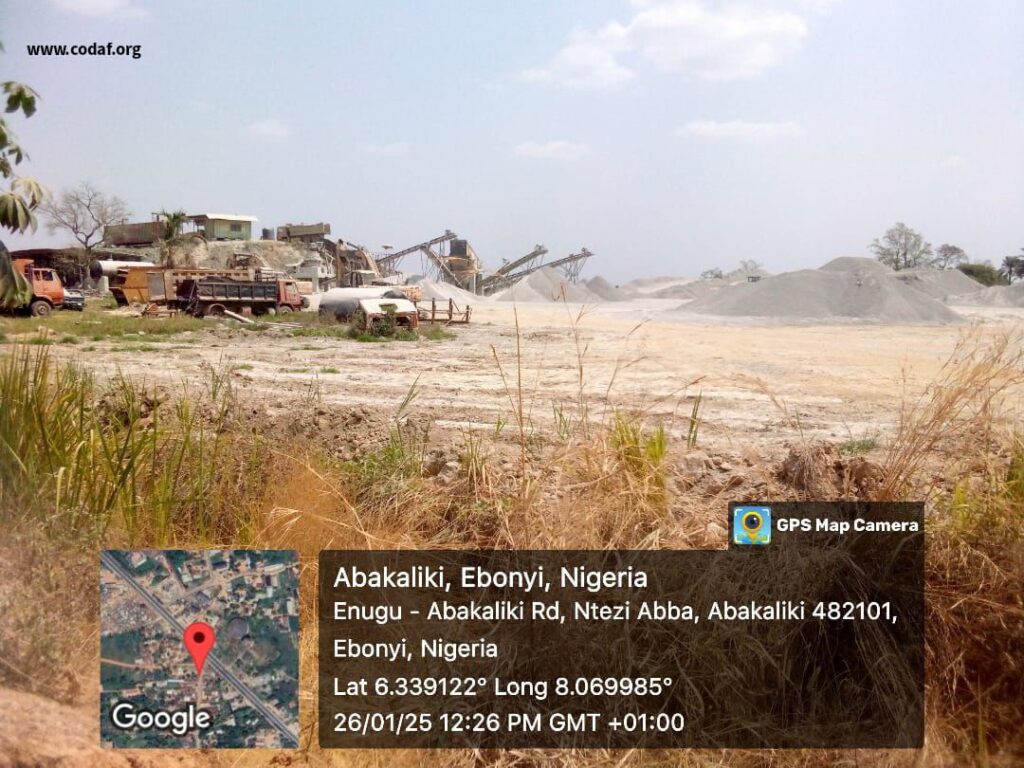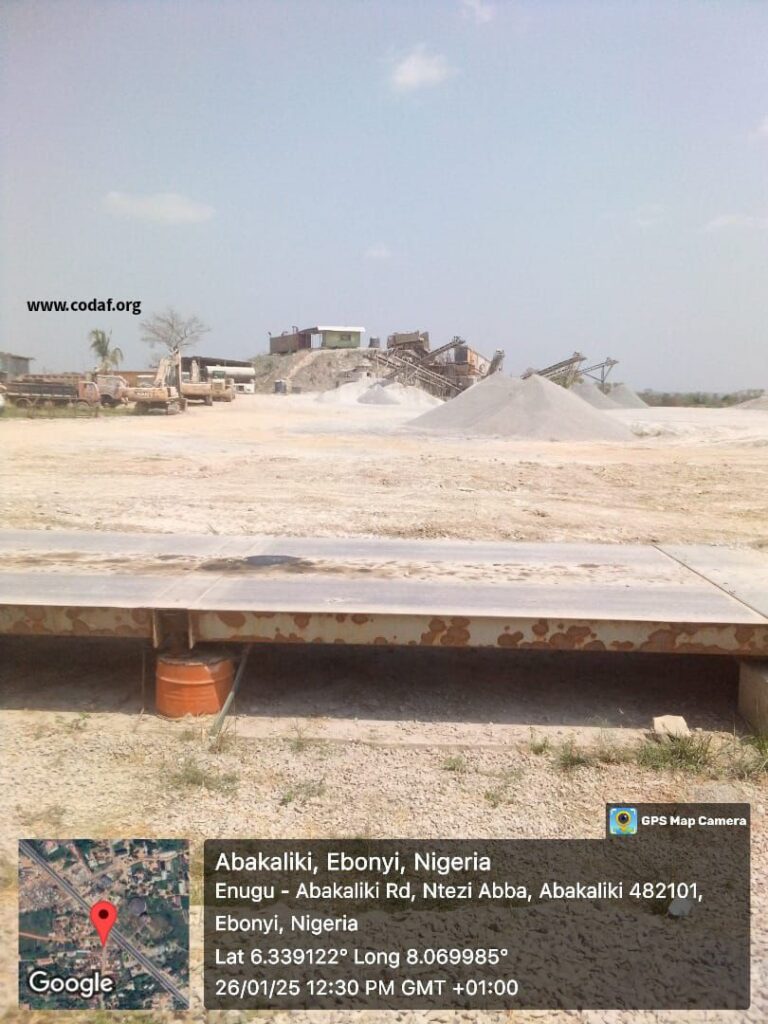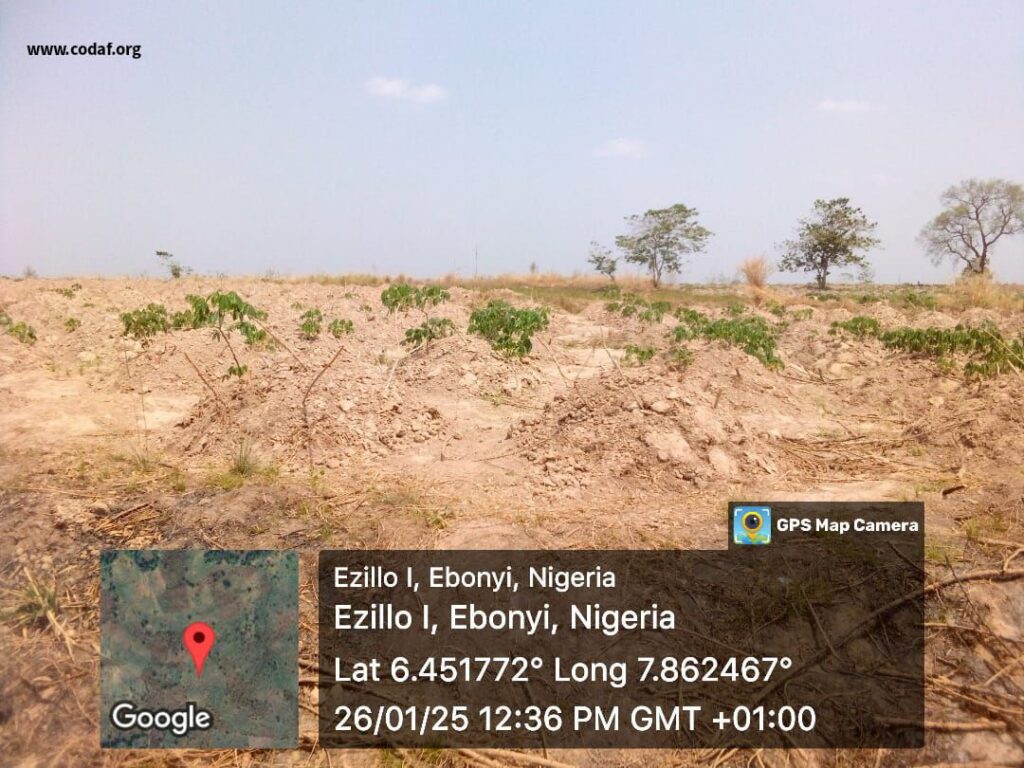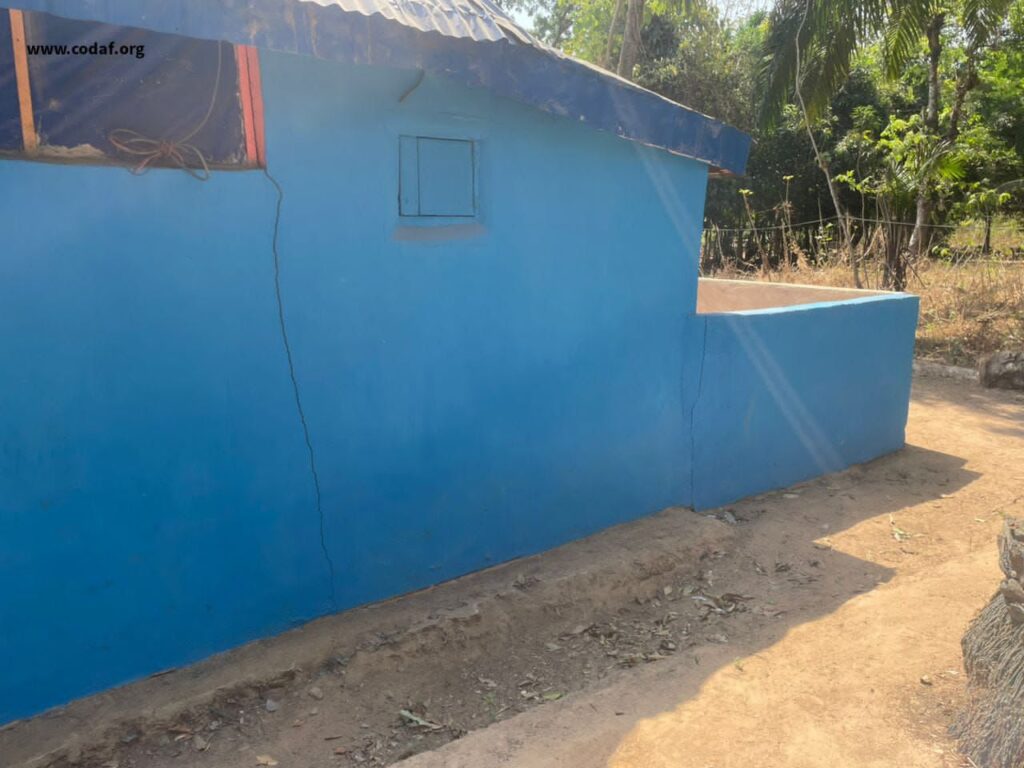…CODAF report exposes damning human rights abuses, environmental destruction by Chinese and Nigerian mining firms in Ezillo and Ikwo, calls for urgent redress and global accountability.
By Bunmi Yekini

A sweeping investigative report launched by the Community Development Advocacy Foundation (CODAF) has revealed shocking environmental degradation and systemic human rights violations by Chinese and indigenous mining companies operating in Ezillo and Ikwo communities of Ebonyi State, Nigeria.
The report, titled “Mining Practices in Ezillo and Ikwo Communities of Ebonyi State: An Environmental Time Bomb,” was unveiled at a global media briefing organized by CODAF in partnership with the Environmental Defenders Network (EDEN), Renevelyn Development Initiative (RDI), and the Africa Just Transition Network (AJTN). Over 60 participants, including legal experts, journalists, and grassroots organizers, attended the event.
“This is not just negligence, it is structured impunity,” said Chima Williams, Executive Director of EDEN. “Legal strategies, including class action lawsuits and community litigation, are necessary tools to hold violators accountable and secure justice.”
Field Investigations Expose Pattern of Abuses

The report is based on field investigations across four Ebonyi communities and details a litany of abuses including:
- Absence of Environmental and Social Impact Assessments (ESIA)
- Illegal land grabbing and pollution of water and farmlands
- Discriminatory compensation favoring local elites
- Use of security forces to suppress dissent
- Widespread respiratory illness, infertile soils, and collapsed local economies
“These communities are facing an existential crisis,” said Ciza Mukabaha, Assistant Coordinator of AJTN. “The report shows a wilful non-compliance with legal frameworks. Communities deserve justice, compensation, and comprehensive remediation.”

Women, youth, and persons with disabilities have reportedly been sidelined in all decision-making processes, including compensation and community development agreements.
Mercia Andrews of South Africa’s Rural Women Assembly linked the situation in Ebonyi to broader struggles across the continent:
“The stories from Ezillo and Ikwo reflect a broader struggle of rural communities across Africa. Organizing women and affected people into strong, informed movements is key to reclaiming our land, rights, and future.”
“The Silence is Dangerous”
Philip Jakpor, Executive Director at RDI, emphasized the need for media and civil society action.
“The findings are disturbing and add to the pool of resources available to hold the mining firms to account. The media must rise to its responsibility of amplifying community voices and exposing environmental injustices. Silence in the face of these injustices is as dangerous as the grave situation in the communities.”

CODAF Director of Campaigns and Administration, Maimoni Ubrei-Joe, said the report aims to trigger both outrage and tangible action.
“The people of Ezillo and Ikwo deserve justice, dignity, and a healthy environment to call home,” he stated.
Recommendations and Next Steps
In response to the findings, the report calls for immediate and independent environmental audits, post-impact assessments, fair and inclusive compensation in line with global standards like the World Bank’s OP 4.12, and community engagement that prioritizes women, youth, and marginalized groups.
It also recommends the implementation of resettlement and livelihood restoration programs and the enforcement of Nigerian and international environmental laws, including the ADB Safeguard Policy.
Benin Richard, Executive Director of CODAF, concluded that the report was a response to numerous undocumented complaints from affected communities:
“The situation demanded a comprehensive field investigation. What we found was worse than we imagined.”
As the calls for justice grow louder, the affected communities and their allies hope this report will mark a turning point in the struggle for environmental justice and human dignity in Nigeria’s mining regions.
